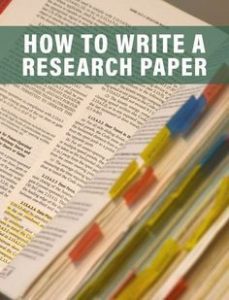Introduction
[caption id="attachment_369054" align="alignnone" width="285"]

Summer Class Research & Writing[/caption]
The sun is out, the birds are chirping, and everyone else seems to be on vacation. But here you are, staring down a mountain of textbooks and research papers. Summer classes can feel like a cruel joke – a condensed semester crammed into a few short weeks. And let's not forget the biggest hurdle: summer class research & writing. Where do you even begin when deadlines loom and the beach beckons?
Summer classes are notorious for their accelerated pace. You have less time to absorb information, conduct research, and craft a well-developed essay. Compressing weeks of research and writing into a shorter time frame can feel overwhelming, especially when juggling summer activities or work schedules.
Fear not, fellow student! This guide is your summer school survival manual for summer class research & writing. We'll equip you with effective strategies to navigate the research rabbit hole, craft strong arguments in record time, and manage your writing process like a pro.
By the end of this post, you'll be a summer class research & writing ninja! We'll cover essential research techniques for finding credible sources in a flash. You'll learn how to build a powerful argument even with a tight deadline. Finally, we'll unveil time-management hacks that will help you conquer your summer workload and free up some time for those beach days (we promise!).
Mastering Summer Class Research & Writing in a Time Crunch
[caption id="attachment_369051" align="alignnone" width="229"]

summer class research & writing[/caption]
Why Strong Research Matters in Summer Classes
Even with a condensed time frame, strong summer class research & writing is crucial for success. Summer class research & writing allows you to support your arguments with evidence, demonstrate a deeper understanding of the subject matter, and ultimately impress your professor. Strong research builds the foundation for a well-developed essay, even when deadlines feel tight.
Developing a Summer Class Research & Writing Plan
To conquer summer class research & writing in a time crunch, a solid plan is essential. Here's what you need to consider:
- Identifying Credible Sources: Don't waste time sifting through unreliable information. Explore your library's online databases, which offer access to a wealth of academic journals and scholarly articles. Utilize reputable websites from government organizations, educational institutions, or established news outlets. Remember, a strong source should be credible and relevant to your topic.
- Keyword Search Strategies for Efficient Research: Mastering effective keyword searches can significantly improve your summer class research & writing efficiency. Focus on specific keywords related to your topic and experiment with Boolean operators (AND, OR, NOT) to refine your results. For example, searching for "climate change AND economic impact" will yield more targeted results than just "climate change."
- Evaluating Sources for Credibility: Not everything online is created equal. Learn to assess the credibility and authority of your sources. Look for author affiliations, publication dates, and evidence of a rigorous editorial process. Be wary of websites with biased viewpoints or those lacking clear authorship information.
- Taking Effective Notes During Summer Class Research & Writing: As you gather information, develop a note-taking system that works for you. Consider using notecards, mind maps, or digital note-taking apps. Organize your notes by key themes or arguments to facilitate easier integration into your writing later.
Saving Time with Research Tools
Fortunately, several online tools can streamline your summer class research & writing process:
- Online Research Tools: Leverage online research tools like Google Scholar or online library databases to quickly locate scholarly articles and reputable sources relevant to your topic. These tools often allow you to filter results by date, publication type, and subject area, saving you valuable research time.
- Citation Generators and Plagiarism Checkers (Use with Caution): Citation generators can automate the citation formatting process, but remember to always verify the accuracy of generated citations before including them in your work. Similarly, plagiarism checkers can be helpful tools for identifying potential plagiarism issues, but they should not replace your own critical analysis of sources and proper citation
Crafting Strong Arguments with Less Time
Deciphering the Assignment Prompt: Your Roadmap to Success
Before diving into research, it's crucial to carefully analyze your summer class assignment prompt. This serves as your roadmap to crafting a strong argument and demonstrating a clear understanding of the topic.
Take time to identify key elements of the prompt, such as:
- The central question or topic: What specific issue are you addressing?
- Required arguments or positions: Are you asked to analyze, compare and contrast, or persuade the reader of a specific viewpoint?
- Supporting evidence requirements: Does the prompt specify types of evidence you should use (e.g., historical data, scientific studies, literary analysis)?
Understanding the prompt's nuances and tailoring your research accordingly will save valuable time in the summer class research & writing process.
Here are some examples of breaking down different types of prompts:
- Argumentative Essay Prompt: "The use of social media has a negative impact on mental health in teenagers. Argue your position using relevant examples and research."
- Key elements: Social media's negative impact on teen mental health; persuasive argument required; evidence of the impact is needed.
- Research Paper Prompt: "Analyze the economic and social factors that led to the American Revolution."
- Key elements: American Revolution causes; analytical approach; evidence from both economic and social perspectives.
Building a Powerful Thesis Statement in a Flash
[caption id="attachment_369052" align="alignnone" width="235"]

Summer class research & writing[/caption]
Now that you've deciphered the prompt, it's time to formulate a strong thesis statement. A thesis statement acts as the central argument of your essay, providing a clear roadmap for your reader and is often in the introduction. Here's a step-by-step guide to crafting a concise and impactful thesis statement for your summer class research & writing:
- Identify the Main Point: What is the key argument you want to present in your essay?
- Connect to the Prompt: Ensure your thesis directly addresses the specific question or topic posed in the assignment.
- Be Specific, Not Vague: Avoid overly broad statements. For example, "The American Revolution was a complex event" is too vague.
Here are some examples of strong and weak thesis statements specifically for summer class research & writing assignments:
Strong Thesis Statement (Literature): "F. Scott Fitzgerald's portrayal of Gatsby in The Great Gatsby exposes the destructive nature of the American Dream during the Jazz Age."
- Addresses the prompt: Analyzes a specific character in a specific literary work.
- Clear argument: Highlights the destructive nature of the American Dream.
Weak Thesis Statement (Science): "Climate change is a serious issue."
- Too broad: Doesn't address any specific aspects of climate change.
- Lacks argument: Needs a stronger statement about the impact of climate change.
Evidence: The Building Blocks of a Strong Argument
Now that you have a clear thesis statement, it's time to gather evidence to support your claims. Here's how to effectively integrate research findings into your summer class research & writing:
- Choose the Right Evidence Type: Different types of evidence serve different purposes. Use quotes to support specific points from credible sources. Statistics can provide a quantitative perspective on your argument. Real-world examples can illustrate your points in a relatable way.
- Integrate Evidence Seamlessly: Don't just dump quotes into your essay. Introduce the evidence source, explain its relevance to your argument, then analyze how it supports your point.
- Cite Properly and Avoid Plagiarism: Always cite your sources using the required format (e.g., APA, MLA). Paraphrase ideas in your own words and use quotation marks when directly quoting text.
Remember, strong evidence is the backbone of a persuasive argument. By effectively integrating research findings and avoiding plagiarism, you can solidify your essay's credibility and impress your professor even with a tight summer class deadline.
Time Management for Summer Writing
Summer classes may be short, but the workload can feel overwhelming. To conquer your summer class research & writing without sacrificing your sanity, effective time management is key.
Setting Realistic Goals and Embracing the Pomodoro Technique
Don't try to cram everything into one all-nighter! Start by creating a manageable writing schedule for yourself. Break down the assignment into smaller tasks with realistic deadlines. Consider using the Pomodoro Technique, a popular time management method. This involves working in focused 25-minute intervals with short breaks in between. It helps maintain focus and prevents burnout.
Conquering Each Step of the Writing Process
Summer class research & writing is not a one-step process. Divide it into manageable steps like:
- Research: Dedicate specific time slots for gathering information and taking notes.
- Outlining: Organize your thoughts and structure your argument using an outline.
- Drafting: Write a rough version of your essay, focusing on getting your ideas down first.
- Revising: Refine your argument, strengthen evidence integration, and ensure clarity.
- Editing: Proofread for grammar and ensure proper citation formatting.
Allocate specific time slots for each step based on the assignment size and deadline. This way, you avoid last-minute scrambling and ensure a high-quality final product.
Identifying and Crushing Procrastination
Procrastination is a summer student's worst enemy! Identify your procrastination triggers - social media, phone notifications, a messy workspace. Once you know your triggers, develop strategies to overcome them.
Here are some tips:
- Set Rewards: Break down large tasks into smaller ones and reward yourself for completing each step.
- Eliminate Distractions: Silence your phone notifications, find a quiet study space, and avoid social media while working.
- Just Start: Sometimes, the hardest part is simply beginning. Set a timer for 10 minutes and commit to writing just for that timeframe. You'll often find yourself continuing well past the initial goal.
By following these time management tips and staying focused, you can conquer your summer class research & writing and avoid the dreaded last-minute writing frenzy.
Additional Resources for Summer Success
Don't forget, you're not alone in this summer scramble! Here are some resources to boost your summer class research & writing skills:
- Online Writing Labs (OWLs): Many universities offer online writing labs with tutorials specifically focused on summer class research & writing. Utilize these resources for guidance on research strategies, citation styles, and effective writing techniques.
- Subject-Specific Study Guides: Enhance your understanding of specific summer course subjects with online study guides. These resources can provide summaries of key concepts, practice questions, and additional research materials to strengthen your summer class research & writing.
- Time Management Apps: Stay on top of your workload with time management apps that help you create schedules, set reminders, and track your progress.
- Professorial Power and Writing Center Prowess: Remember, your professor and the university writing center are invaluable resources. Don't hesitate to reach out for guidance with assignment clarification, research strategies, or feedback on your drafts. By utilizing these resources and the tips in this guide, you'll be well on your way to conquering your summer class research & writing and acing those summer courses!
Conclusion
Feeling overwhelmed by summer class research & writing? Don't sweat it! This guide has equipped you with essential strategies for mastering research techniques, crafting strong arguments, and conquering your workload with effective time management. Remember, strong research builds the foundation for a successful essay, while clear argumentation and proper citation practices will impress your professor. Take a deep breath, apply the tips you've learned, and approach your summer class research & writing with confidence. You've got this! With these skills in your arsenal, you'll be well on your way to conquering your summer courses and feeling empowered by your newfound research and writing prowess.
Ready to crush your summer classes? Bookmark this guide as your go-to resource for summer class research & writing success! Don't forget to share it with your fellow summer warriors!
 Summer Class Research & Writing[/caption]
The sun is out, the birds are chirping, and everyone else seems to be on vacation. But here you are, staring down a mountain of textbooks and research papers. Summer classes can feel like a cruel joke – a condensed semester crammed into a few short weeks. And let's not forget the biggest hurdle: summer class research & writing. Where do you even begin when deadlines loom and the beach beckons?
Summer classes are notorious for their accelerated pace. You have less time to absorb information, conduct research, and craft a well-developed essay. Compressing weeks of research and writing into a shorter time frame can feel overwhelming, especially when juggling summer activities or work schedules.
Fear not, fellow student! This guide is your summer school survival manual for summer class research & writing. We'll equip you with effective strategies to navigate the research rabbit hole, craft strong arguments in record time, and manage your writing process like a pro.
By the end of this post, you'll be a summer class research & writing ninja! We'll cover essential research techniques for finding credible sources in a flash. You'll learn how to build a powerful argument even with a tight deadline. Finally, we'll unveil time-management hacks that will help you conquer your summer workload and free up some time for those beach days (we promise!).
Summer Class Research & Writing[/caption]
The sun is out, the birds are chirping, and everyone else seems to be on vacation. But here you are, staring down a mountain of textbooks and research papers. Summer classes can feel like a cruel joke – a condensed semester crammed into a few short weeks. And let's not forget the biggest hurdle: summer class research & writing. Where do you even begin when deadlines loom and the beach beckons?
Summer classes are notorious for their accelerated pace. You have less time to absorb information, conduct research, and craft a well-developed essay. Compressing weeks of research and writing into a shorter time frame can feel overwhelming, especially when juggling summer activities or work schedules.
Fear not, fellow student! This guide is your summer school survival manual for summer class research & writing. We'll equip you with effective strategies to navigate the research rabbit hole, craft strong arguments in record time, and manage your writing process like a pro.
By the end of this post, you'll be a summer class research & writing ninja! We'll cover essential research techniques for finding credible sources in a flash. You'll learn how to build a powerful argument even with a tight deadline. Finally, we'll unveil time-management hacks that will help you conquer your summer workload and free up some time for those beach days (we promise!).
 summer class research & writing[/caption]
Why Strong Research Matters in Summer Classes
Even with a condensed time frame, strong summer class research & writing is crucial for success. Summer class research & writing allows you to support your arguments with evidence, demonstrate a deeper understanding of the subject matter, and ultimately impress your professor. Strong research builds the foundation for a well-developed essay, even when deadlines feel tight.
Developing a Summer Class Research & Writing Plan
To conquer summer class research & writing in a time crunch, a solid plan is essential. Here's what you need to consider:
summer class research & writing[/caption]
Why Strong Research Matters in Summer Classes
Even with a condensed time frame, strong summer class research & writing is crucial for success. Summer class research & writing allows you to support your arguments with evidence, demonstrate a deeper understanding of the subject matter, and ultimately impress your professor. Strong research builds the foundation for a well-developed essay, even when deadlines feel tight.
Developing a Summer Class Research & Writing Plan
To conquer summer class research & writing in a time crunch, a solid plan is essential. Here's what you need to consider:
 Summer class research & writing[/caption]
Now that you've deciphered the prompt, it's time to formulate a strong thesis statement. A thesis statement acts as the central argument of your essay, providing a clear roadmap for your reader and is often in the introduction. Here's a step-by-step guide to crafting a concise and impactful thesis statement for your summer class research & writing:
Summer class research & writing[/caption]
Now that you've deciphered the prompt, it's time to formulate a strong thesis statement. A thesis statement acts as the central argument of your essay, providing a clear roadmap for your reader and is often in the introduction. Here's a step-by-step guide to crafting a concise and impactful thesis statement for your summer class research & writing: